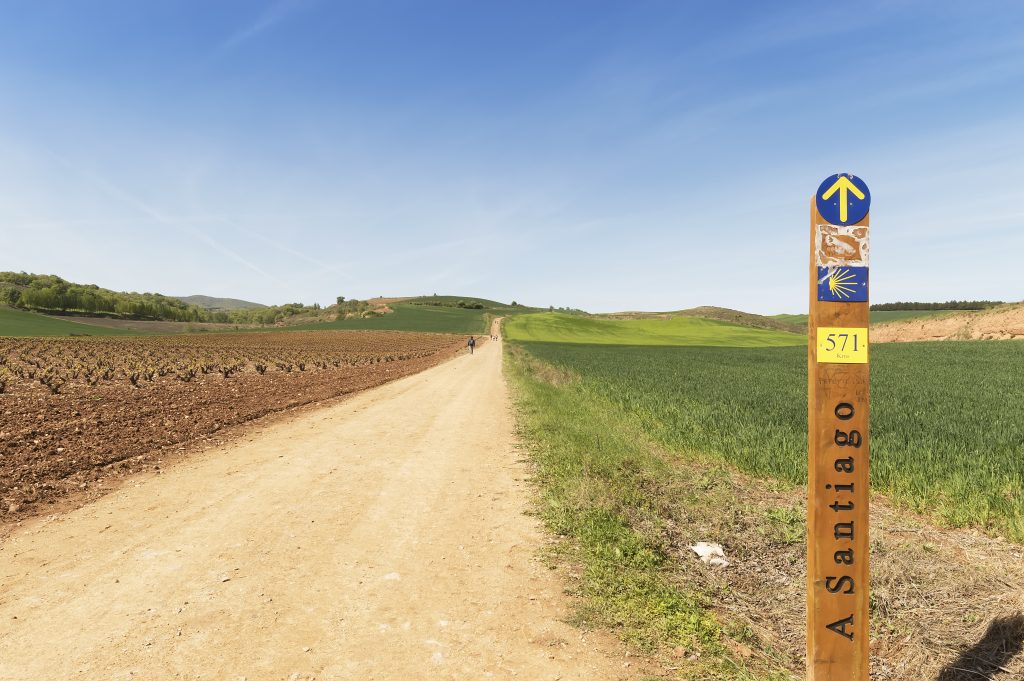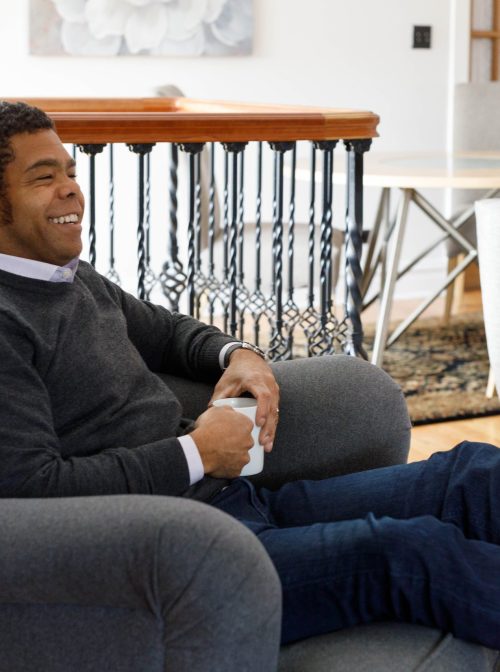“And when I think about it, I guess it is true that people always arrive at the right moment at the place where someone awaits them.”
—Paulo Coelho, “The Pilgrimage”
In August 2023, I embarked on my second post-pandemic pilgrimages, walking seven days and 100 miles of the Camino de Santiago in Spain, a nearly 1700- year-old Christian pilgrimage route to the cathedral that is said to hold the bones of James the Elder, disciple of Jesus. I traveled as a Christian pastor with a Hindu walking partner. Here were a few lessons I learned along the way about the art of building community.
Make Time for Others
The train was arriving late. Wildfires in the South of France, caused by unseasonably hot weather, made the countryside sizzle like kindle and jumped the tracks that would have taken us to the sleepy mountain town of St. Jean Pied de Port. Global warming, no longer a future oracle, rather today’s headline, set in motion a series of events which left me and my walking partner Milan aching along in sweltering noonday heat at the heights of the Pyrenees mountains dividing France from Spain. The delays left us without the ability to transfer trains necessary to arrive at our final destination. We, along with some eight other stranglers marooned at the train station waited for a midnight taxi ride to take us to our lodging about an hour’s drive away. By 3 a.m. we settled into our beds aware that we needed to wake up just a few hours later for a slightly delayed start on arguably the Camino Frances’ most grueling day of hiking: the ascent up and down the Pyrenees mountains in the heat of an abnormally hot summer.

Such a comedy of errors as I’ve described is not unknown to pelegrinos or pilgrims on the way to Santiago. Each pilgrimage offers its own moments of extreme duress, panic, or anxiousness that cause the traveler to decide, in one way or another, to let go. For Milan and me, it was letting go of our schedules and expectations for an orderly and sweat free march across the French and Spanish countryside. And therein lies the first lesson of community. If you are looking to travel with others, you must break with your own individualistic route and open yourself. That delayed start and those frazzled hours opened us up to individuals, couples, and groups we would otherwise never encounter or meet. As you walk the road to Santiago, you realize that timing is everything. If you yield to the time that you have, the companions you need emerge.
Follow the Rules in Order to Break Them
Each day you walk the Camino, based on the time and place of your start, along with the pace of your walking, you will find yourself walking with the same group of pilgrims or meeting new ones who are walking at a different pace. As you hit the paths with someone new, one of the first questions you might casually stumble into is: Why are you walking the Camino? It turns out that this is a question sometimes frowned upon on pilgrimage. It was a kind of unspoken rule that one does not inquire so brusquely into the motives of others for embarking on such a personal endeavor. So when I met a French lawyer who was walking the path with us one day, I quickly discovered my faux pas in her reaction and embarrassingly shifted the conversation to other questions.
But as we got to talking, and I got to practicing my long dormant French, the conversation touched on family loss, vocational wanderings, and distinctly resonant forms of spirituality. Over the course of days and meals we shared with several others, these topics all illuminated for me the question I asked abruptly days earlier. Rather than seeking the answer straightaway, I learned that the spark of community is most present when we put the eagerness to know aside and instead, open space for insights and answers to emerge as we walk the path and build trust together.
Let Others Make Time for You
It was in the early afternoon of our fifth day walking that, for the first time on the Camino, my right foot swelled up with unrelenting pain. Probably a sign to slow down. So, we somehow found a bus to take us to the next town and then I took an Advil and a siesta. Feeling somewhat invigorated and with the pain subsiding, I felt compelled to go back and complete the whole day’s route by walking. So Milan grabbed his pack and ensured that, according to the motto of his beloved Liverpool football club, You Never Walk Alone. We got back at it and finished walking under a cool evening breeze.
We came in about 8 p.m. looking for dinner, but everything in town was closed. Knocked on the door of another hostel and the lights were off. The kitchen was closed. Nevertheless, though we weren’t guests there, the innkeeper, Jose Maria, a retired physics professor, looked at our pitiful faces up and down, and couldn’t refuse to serve us something. So, un minuto, he said. And I watched as he took some Navarra artichoke and ham stew out of the fridge, brought bread, Spanish tortilla, yogurt, and oranges. He set the table, brought the wine, and half famished but fully grateful, we finished it all.
Sometimes in building a community, we are shy about making a request or communicating our needs, especially if they might leave us vulnerable. But often there are people waiting to give and eager to share needs and trials of their own.
We travel alone, but together at the same time.
After seven days and 100 miles, we walked into Logrono, the end of our pilgrimage for now, ever grateful for the community of friends and strangers that developed along Camino. As the full cityscape came into view, a Belgian friend who we kept running into over the course of the week had joined us and began singing a Taizé chant adapted from words of Theresa of Avila, and I joined in:
Nada te turbe, nada te espante
Quien a Dios tiene, nada le falta
Translated: Let nothing disturb you, let nothing frighten you. The one who has God lacks nothing.
Whether God is the object or merely the backdrop, what has drawn millions on the Camino de Santiago for more than a millennium is this notion of being pushed to the edge of one’s capacity and yet not faltering. And the key ingredient in that outcome and Camino’s enduring lesson is how to find the community that keeps us from fear.
Rev. Joseph L. Morrow is Associate Pastor for Evangelism and Community Engagement at the Fourth Presbyterian Church of Chicago. Joe is a Sacred Journey fellow with Interfaith America and has worked extensively in congregational, non-profit, higher education, and corporate settings.





